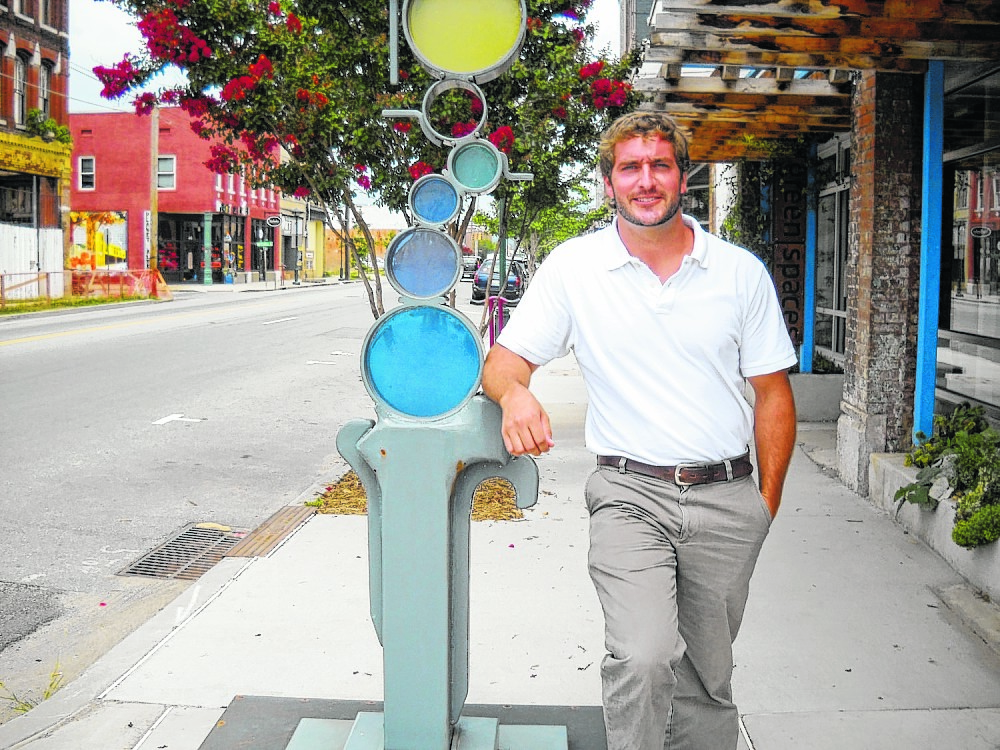There has been lots of talk around town about Chattanooga CARES' new executive director, Matt McAdoo, and his efforts to rebrand the HIV/AIDS resource agency. Some of his comments in a story published in last Sunday's Times Free Press sparked concern among some members of the gay community. Here, McAdoo expands on his points and on the organization's future.
Q You have worked for Republican Sen. Bill Frist, taught at Tennessee Temple and attend Silverdale Baptist Church. What are your personal views on homosexuality? Are they relevant to your job as executive director?
A As it is with most people, my life experiences have helped mold my opinions and perspectives. My most profound experiences have come from exploring, interacting and understanding people who are different than I.
I am a man of faith, as I have defined it. I believe that we are all born as unique individuals. This includes our sexual orientation. Who we are, our humanity and opinions, come from our genetic make-up that is tempered by theological, sociological and political experiences.
Chattanooga CARES' mission embodies and appreciates this understanding of human diversity. CARES' mission and mine complement each other. I, as executive director, will work to ensure that this message and the actions of CARES guide us in delivering our services to people affected by HIV as well as to the many communities and populations we serve.
Q What will the mission and message of Chattanooga CARES be moving forward?
A Chattanooga CARES' mission is and will continue to be the touchstone for our efforts. Our core mission and focus is HIV/AIDS and includes education, prevention, awareness and support for all people affected by HIV, as well as those who might become infected.
The disease of HIV is no longer a one-dimensional threat. Today, HIV impacts every Hamilton County ZIP code and the other 27 counties we serve. It affects us all, regardless of race, religion, orientation or socioeconomic status. Therefore it is CARES' responsibility and task to eliminate barriers to HIV education, prevention and treatment. Our challenges are to dissolve barriers and create new opportunities to educate previously underserved communities and population groups to prevent new HIV infections.
Q Does Chattanooga CARES' long association with the gay community and the fact that it treats many men who have sex with men make it difficult to raise money for the organization?
A In the current economic climate it is difficult for any organization to raise money. This challenge is compounded when potential donors are unclear about the work and mission of an organization. CARES' fundraising is not related to the orientation of our clients or the ideology of our supporters.
One of our challenges is the need to dispel misconceptions of our organization's mission and to effectively communicate CARES' true mission: reaching all those affected by HIV, not only those who are statistically the most at risk, but all populations through education, prevention and support.
Q Last year, the Tennessee Department of Health found that 50 percent of new HIV cases in Chattanooga were among men who have sex with men, and that number could be higher because an additional 39 percent of cases were flagged as other or unknown. In 2011, 508 people who identified themselves as men who have sex with men were living with the virus in Chattanooga, up 17.5 percent from 432 in 2007. Heterosexual cases have risen 7.7 percent in the same period to total 167. What is CARES doing to address the continuing epidemic among gay men?
A Over 26 years ago CARES was created in an effort to address the AIDS epidemic among gay men in Hamilton County. During the past two decades, the disease has grown from affecting the gay community to an issue that now affects every demographic, not only in the Chattanooga area but throughout the nation. While CARES has expanded its education and prevention efforts to address the progression of the disease, we have not diverted our focus from the population who remains the most at risk. CARES has and will continue to work collaboratively with all organizations that represent the interests of the gay, lesbian, bisexual and transgender communities, through sustained and targeted education and prevention efforts.
Q How do you reach other at-risk populations like women and minority communities with a message of prevention? What stands in the way of spreading education about the virus?
A Despite the exponential growth of HIV and the fact that any person who is sexually active, whether gay or straight, is at risk, the message on how to prevent new infections is being stifled.
The recent passage of the "gateway to sex act" will, more than likely, censor HIV prevention-education in Tennessee schools. With African-Americans accounting for 58 percent of new infections of which 70 percent are female, it is imperative that CARES communicates and applies our prevention messages to all underserved and minority populations. We will utilize and involve the community's educators, faith-based and civic organizations.
We will only succeed if we are perceived as an inclusive organization, where all people are served.

